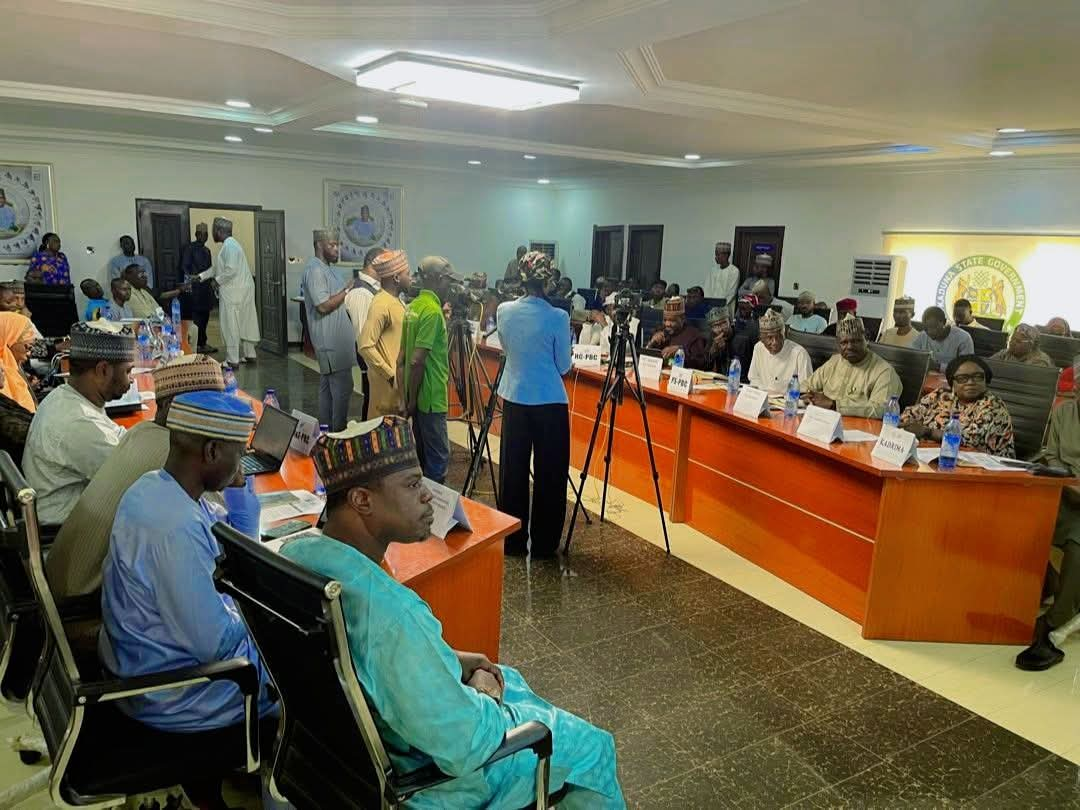By; JACOB ONJEWU DICKSON The Kaduna State Planning and Budget Commission recently hosted a pivotal engagement with key stakeholders, includ
By; JACOB ONJEWU DICKSON
The Kaduna State Planning and Budget Commission recently hosted a pivotal engagement with key stakeholders, including private sector representatives, women’s groups, and people with disabilities, to deliberate on the 2026-2028 Medium-Term Expenditure Framework (MTEF) and the state’s budget implementation report for the first two quarters of 2025.
In his opening remarks, the Commissioner of the Kaduna Planning and Budget Commission, Hon. Mukhtar Ahmed Monrovia, presented the state’s budget performance, highlighting a cumulative half-year performance of ₦340.3 billion for revenue and ₦208.8 billion for expenditure. These figures represent a 43.1% and 26.4% performance respectively against the 2025 original budget.
Hon. Mukhtar noted that capital expenditure implementation stood at ₦108.5 billion, representing 19.7% of the original capital budget of ₦551.6 billion. He explained that the joint review of the first and second-quarter performances was a deviation from the traditional schedule, necessitated by earlier workload exigency.
The Commissioner said that the session was a fulfillment of Governor Uba Sani’s campaign promise on citizen engagement and a testament to Kaduna’s commitment as an active member of the Open Government Partnership (OGP).
The commissioner detailed the state’s priority investments, which focused on critical sectors such as infrastructure, agriculture, education, and health.
He highlighted rural road construction and fertilizer procurement for farmers as leading capital outlays. In a landmark move, schoolchildren were invited to the deliberations in line with the International Year of the African Child and a UNICEF commitment to involve young citizens in governance. This, he said, would empower children by giving them a voice in shaping the budget and helping them understand that public resources are their own
.
The session also saw the unveiling of a competitive budget-setting approach aimed at ensuring equitable attention to all 255 wards across the state, forming the basis of the multi-year plan to 2028.
Hon. Mukhtar presented the drafted MTEF, stating that the 2026 budget estimates would be strictly based on the Green MTEF document’s projections to achieve a significant level of budget realism.
He emphasized that the MTEF has historically provided more reliable estimates.
He also explained that to align with global energy and climate change responsiveness, the 2026-2028 period would demand reinforced investments in climate-resilient infrastructure, disaster risk management, and ecosystem restoration.
He stressed that the responsibility for these actions falls not on the government alone, but on “All,” through cooperation and collaboration
.
In an interview with newsmen, the Accountant General of Kaduna State, Hon. Bashir Suleiman, stated that the engagement was crucial for ensuring accountability in the budget implementation process. “Whenever a budget has been passed, there is an implementation process, and civil society groups are here to see if the government is doing the needful,” he said.
Hon. Suleiman also clarified that no new loans had been taken since Governor Uba Sani assumed office, explaining that ongoing projects were funded through drawdowns from existing facilities. He added,
“This is part of the transparency and accountability drive of the administration. Having key stakeholders question us on project implementation shows Kaduna State is open to scrutiny in line with the citizens’ engagement agenda.”
Hon. Peter Agite, the Chairman of the House Committee on Budget and Planning, representing Kachia Local Government Area, said the oversight visit was to ascertain the level of project implementation.
He rated the current budget performance between 60% and 70%, citing visible progress in agriculture through fertilizer distribution, school renovations, and ongoing road construction. “We are seeing the releases on the ground, and that is what our people want – tangible evidence of government action,” he said.
Conclusively, it is expected that the 2026 budget estimates will be strictly based on the projections of the Green MTEF document with minimal deviation, so as to achieve a significant level of budget realism. This is because MTEF has historically provided more realistic estimates.
Also, to match the Global energy and Climate Change responsiveness, the period 2026-2028 would demand reinforced investments in climate-resilient infrastructure, disaster risk management and ecosystem restoration, alongside accelerated mitigation actions.
The onus for realizing this does not lie with the Government alone, but the responsibility of “All”, through cooperation and collaboration.
This Government is operating on a platform that includes every citizen in decision making. Therefore, I urge you to maintain and strengthen your hands of partnership towards assisting the Govt to deliver the best to its citizens.
As at the end of Q2 2025, Kaduna State recorded an actual Total Revenue of ₦91,232,312,135.21, while Year-to-Date (YTD) Total Expenditure stood at ₦89,202,307,325.45.
These figures contributed to the cumulative Half-Year budget performance of ₦340,296,244,691.21 for revenue and ₦208,760,832,569.21 for expenditure, representing 43.1% and 26.4% performance against the 2025 Original Budget, respectively.




COMMENTS